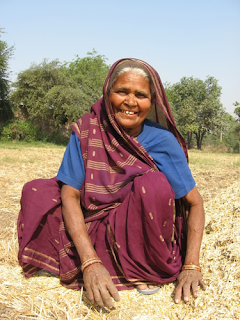Find an exercise plan that suits your condition.
Before starting, remember to consult your physician, especially if you have heart problem, bone and joint problem, or metabolic problems such as diabetes. You may need to have some medication adjustment if you are taking any.
 |
| Anyone who says elderly people don't need exercise can have a go at grandma. |
Start and stop gradually.
Start and stop your exercise session gradually. Avoid doing sudden, intense sudden exercise. Try to prepare yourself with at least 10 minute warm-up before exercising and end your session with another 10 minutes cool down.
Know your limits.
Learn to take hints from your body. Shortness of breath, dizziness, nausea, or feeling shaky means you probably have overexerted yourself and it's time for a break.
Monitor your heart rate during exercise. In order for your body to reap the benefit of aerobic exercises, you will want to reach a target of 50-70% of your maximum heart rate. Your maximum heart rate is 220 subtracted by your age.
Combine different types of exercises
There are four main types of exercise and you need to do a little bit of each. Combining different types of exercise will reduce monotony and increase the overall benefit to your health.
- Cardio-endurance exercises like walking, swimming, hiking, cycling, and dancing improve the health of the heart and circulatory system
- Strengthening exercises like weight lifting will build muscle tissue and prevent osteoporosis
- Flexibility like exercises stretching or bouncing keep the body limber and increases your range of movement.
- Balance exercises like yoga and tai chi improve your posture and reduce the chances of a fall.
Stick to the plan.
Commit yourself to an exercise schedule for at least 3 or 4 weeks so that it becomes habit. Try to focus and keep yourself motivated towards your goals.


